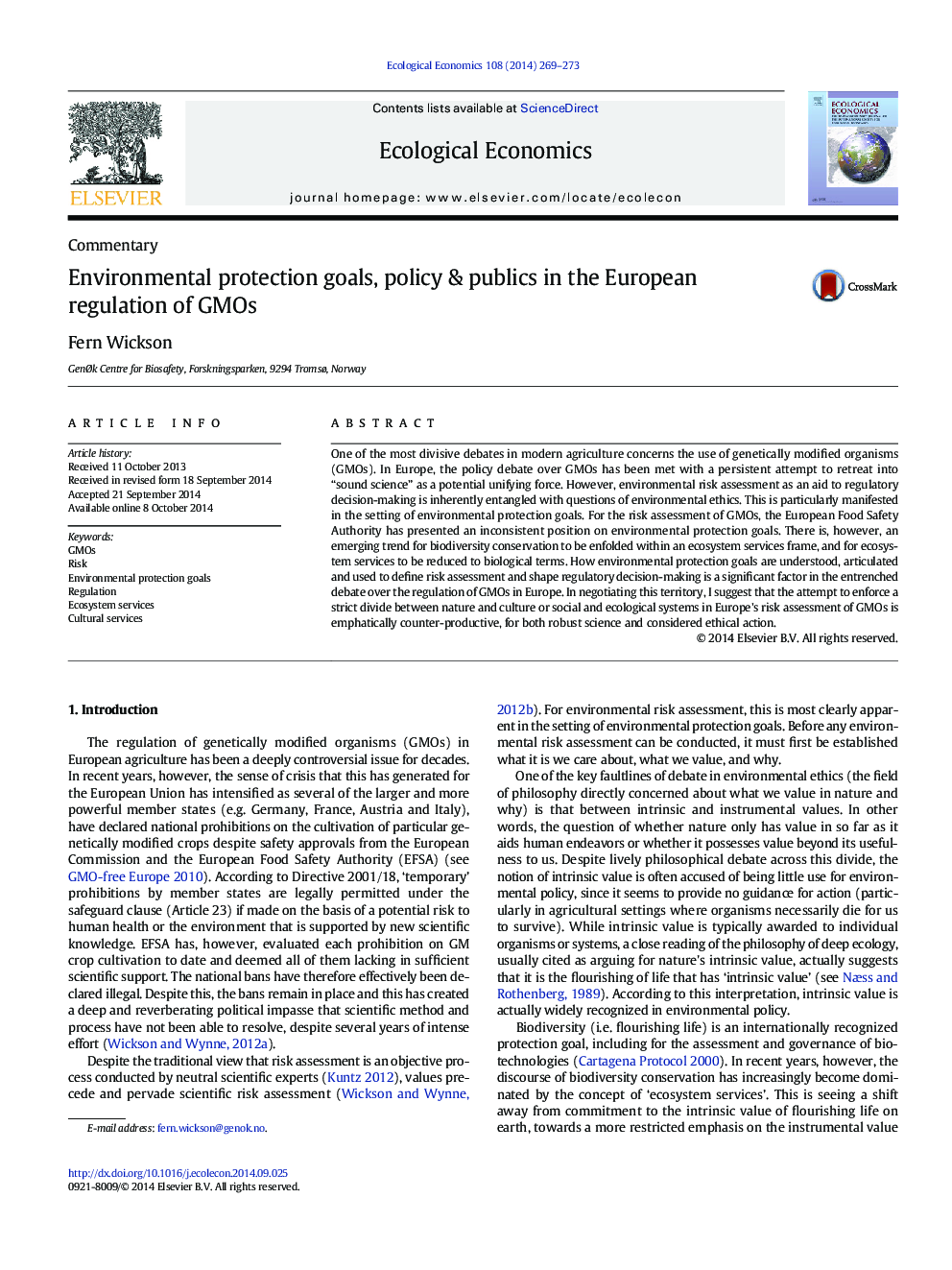| Article ID | Journal | Published Year | Pages | File Type |
|---|---|---|---|---|
| 5049568 | Ecological Economics | 2014 | 5 Pages |
â¢European Food Safety Authority is inconsistent on environmental protection goals.â¢Biodiversity conservation is increasingly approached from ecosystem services frame.â¢Ecosystem services are regularly being narrowed to exclude cultural services.â¢The exclusion of cultural services marginalizes public participation in policy.â¢All of these factors are amplifying the debate over genetically modified organisms.
One of the most divisive debates in modern agriculture concerns the use of genetically modified organisms (GMOs). In Europe, the policy debate over GMOs has been met with a persistent attempt to retreat into “sound science” as a potential unifying force. However, environmental risk assessment as an aid to regulatory decision-making is inherently entangled with questions of environmental ethics. This is particularly manifested in the setting of environmental protection goals. For the risk assessment of GMOs, the European Food Safety Authority has presented an inconsistent position on environmental protection goals. There is, however, an emerging trend for biodiversity conservation to be enfolded within an ecosystem services frame, and for ecosystem services to be reduced to biological terms. How environmental protection goals are understood, articulated and used to define risk assessment and shape regulatory decision-making is a significant factor in the entrenched debate over the regulation of GMOs in Europe. In negotiating this territory, I suggest that the attempt to enforce a strict divide between nature and culture or social and ecological systems in Europe's risk assessment of GMOs is emphatically counter-productive, for both robust science and considered ethical action.
